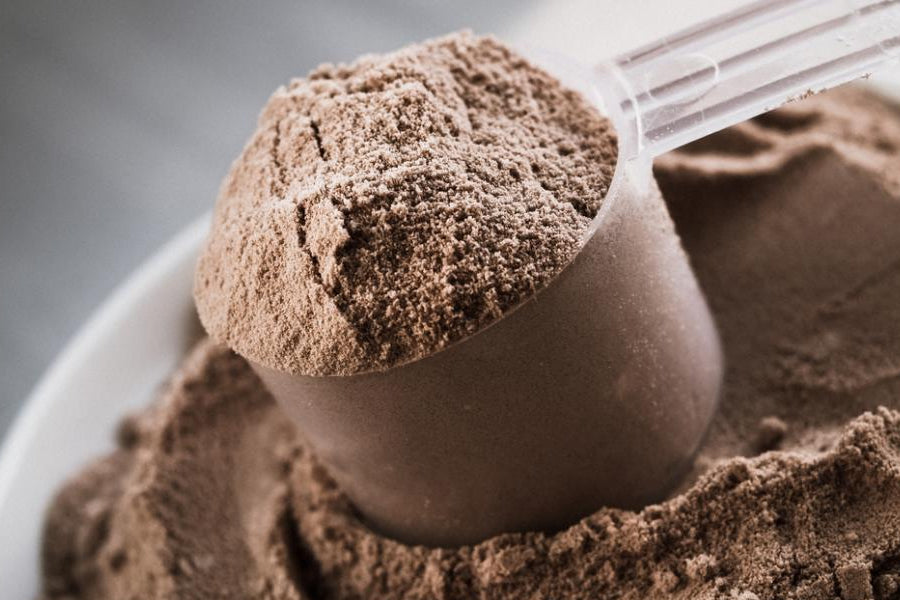Exercising for a long time demands sufficient protein consumption. If you do not give your body enough protein, then the chances of getting a muscular body are less. Your body makes up for the protein loss with the food or supplement that you consume. So, for that, there are many protein options that you can consider.
Out of them, whey protein supplements are a common choice among people. The supplement provides complete nourishment and gives amino acids to the muscle fibers. Whey protein is a healthy option to use as it has many useful effects on the body. It is excellent to use during excessive protein deficiencies and helps in balancing protein intake.
Whey protein is in use for ages. Its healthy and nourishing properties have made them a preferred choice among gym-goers and athletes. Despite their health benefits, some side effects might be associated with them, which in most cases are mild.
The article highlights all the benefits and the possible risk factors that might be associated with whey protein.
Whey protein is a liquid fraction of milk. They contain many important amino acids which are necessary for muscle building and strength. Whey protein is also obtained from milk and is a by-product of cheese making. It has all nine essential amino acids, which are vital for human health and well-being.
The whey protein powder has all the necessary nutrients that help in maintaining health. The caloric content of whey protein is also less and balanced. It also contains branched-chain amino acids, which help in a variety of body processes.
Dietary Precautions While Taking Whey Protein
Whey protein can be a good source of energy for you if you have it in moderate amounts along with other food groups.
1. Eat From All Food Groups
Whey protein is good for people who want to build strength and gain muscle mass. But, in such cases, it is necessary to eat from all food groups so that the body keeps on working at a normal pace. It is never a good choice to solely use whey protein powder as it can tamper with normal body processes.
2. Manage Your Protein Needs
If you are using whey protein powder, it is mandatory to monitor your protein intake from other food sources. Too much protein in your diet can be harmful to you. So, to avoid any side effects, it is best to manage your protein intake from all sources, such as supplements and food items.
3. Have Enough Fiber
Fiber will make sure that your bowel movements are perfect and are working without any problem. If your fiber intake is sufficient, you will see a great improvement in your weight, and whey protein will work perfectly on you as well. Choose fiber-rich foods with whey protein to avoid any side effects.
Health Benefits of Whey Protein

The benefits of whey protein powder outweigh the side effects that they have. The health benefits of whey protein are as follows:
1. Improves Cardiovascular Health
Whey protein supplementation can have a significant effect on cardiovascular health. People who use whey protein have shown an improvement in blood pressure and vascular function according to research.
Even people who are obese or overweight can benefit from its supplementation. The effects of whey protein in improving cardiovascular events are also assessed by research.
2. Boosts Physical Performance
The whey protein powder is excellent to use during workouts. It gives you the energy to do better in your workouts. Apart from that, it also helps you to lose weight as it takes a longer time to digest. In elderly people, using this powder is essential for boosting physical performance and provides many health benefits.
3. Enhances Immunity
In cancer patients, whey protein supplementation can significantly impact nutritional status and immunity. The effects of whey protein in boosting immunity are proven by research as well. The immune response can significantly alter via this supplementation, and hence it is necessary for health. People who are immunocompromised can get benefits from this supplement.
4. Reduces Risk of Cancer
Whey protein has leucine which helps much in dealing with the symptoms of cancer cachexia. The tumor production also gets diminished or, in some cases, become very less with whey protein consumption. Hence, the antibodies production also gets better, which then helps with fighting off infections and diseases.
Whey protein powder is best to consume after exercise. It helps in building muscle fibers which work excessively in exercise and workouts. You can even use it before or during your workout sessions as it works as an energy booster as well. They are gluten-free, and so people having specific allergies can safely use them.
The recommended amount for whey protein powder is one scoop which accounts for 32 grams. The protein intake of fitness enthusiasts and athletes can be perfectly managed by one scoop of whey protein powder. It is safe and does not cause any side effects on health.
Takeaway
Whey protein does not have any harmful effects on the body. People who have some allergies or are facing digestive issues should modulate their protein intake. Apart from that, there is no associated health risk that might come with it.
Whey protein has many other benefits to offer. From improving cardiovascular activity to having some anti-carcinogenic properties, it does it all for your body. While taking it, the calories should be managed so that you can have the most out of it.
Article Sources
- Onwulata, Charles, and Peter Huth. Whey Processing, Functionality and Health Benefits. John Wiley & Sons, 2009.
- Pal, Sebely, and Vanessa Ellis. “The Chronic Effects of Whey Proteins on Blood Pressure, Vascular Function, and Inflammatory Markers in Overweight Individuals.” Obesity, vol. 18, no. 7, 2010, pp. 1354–59. Wiley Online Library, https://doi.org/10.1038/oby.2009.397.
- Camargo, Liziane da Rosa, et al. “Whey Protein Ingestion in Elderly Diet and the Association with Physical, Performance and Clinical Outcomes.” Experimental Gerontology, vol. 137, Aug. 2020, p. 110936. ScienceDirect, https://doi.org/10.1016/j.exger.2020.110936.
- Bumrungpert, Akkarach, et al. “Whey Protein Supplementation Improves Nutritional Status, Glutathione Levels, and Immune Function in Cancer Patients: A Randomized, Double-Blind Controlled Trial.” Journal of Medicinal Food, vol. 21, no. 6, June 2018, pp. 612–16. liebertpub.com (Atypon), https://doi.org/10.1089/jmf.2017.4080.
- Teixeira, Filipe J., et al. “Whey Protein in Cancer Therapy: A Narrative Review.” Pharmacological Research, vol. 144, June 2019, pp. 245–56. ScienceDirect, https://doi.org/10.1016/j.phrs.2019.04.019.
- Bounous, G., et al. “Whey Proteins in Cancer Prevention.” Cancer Letters, vol. 57, no. 2, May 1991, pp. 91–94. ScienceDirect, https://doi.org/10.1016/0304-3835(91)90200-2.








